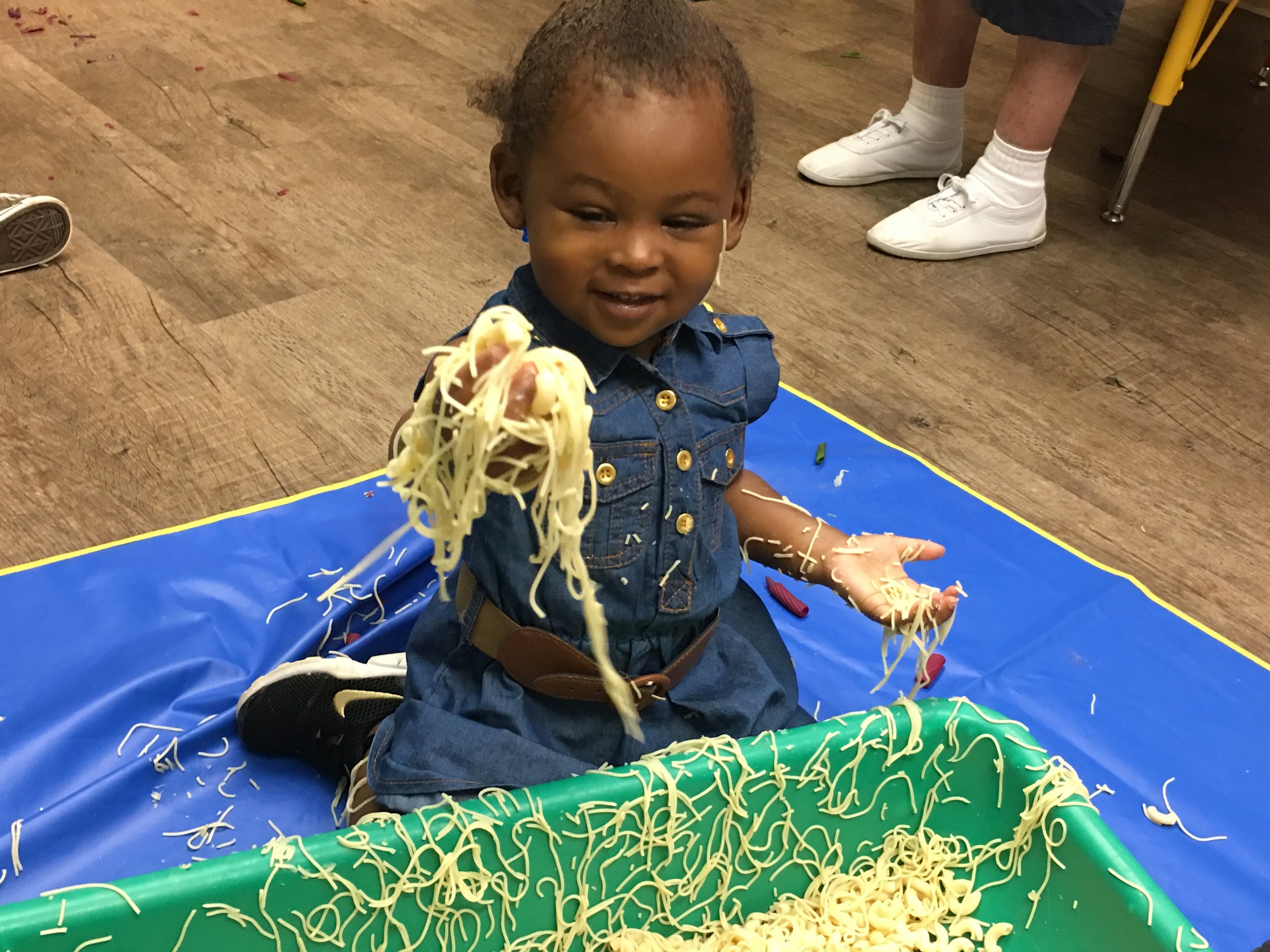Children develop important skills through sensory play
From the time babies are born, through early childhood, they use their senses to explore and learn new things.
Infants and toddlers love to put everything in their mouths and learn quickly whether it tastes good or yucky. They see things they want and make gestures for you to get it. And they love touching things you may or may not want them to touch.
Researchers say providing opportunities for children to use their senses as they explore their world is crucial to brain development – it helps to build nerve connections in the brain’s pathways. It also helps with their physical development.
“Sensory play helps children develop their small muscles as well as their thinking skills and imagination,” said Jacqueline Chaney, lead infant/toddler teacher at Oakland Family Services’ Children’s Learning Center in Pontiac.
Here are some ways sensory play helps children’s development:
Thinking skills
If you place a bowl of cooked spaghetti noodles in front of children, you’ll see their brain at work through their facial expressions. They may be wondering, “Should I touch it?” “If I touch it, what will it taste like?” “Will it smell good?”
“Sensory play stimulates their thinking,” Chaney said. “Even if they don’t verbally express it, you can see the look on their face and are saying if they like it or don’t like it by the way it feels,” Chaney said. “You can read their thoughts by their expression.”
Children also begin to learn cause and effect through sensory play. For example, when children squeeze play dough, they notice it will break into pieces but if they roll the play dough, it becomes one solid piece.
Parents can stimulate their child’s thinking skills by asking open-ended questions. If your child is touching whipped cream, try asking: “What does it feel like?” or “What do you think you should do with it?”
Muscle Development
Sensory play often involves using small muscles by discovering things through the use of pinching, pouring, sorting and moving actions.
Children primarily use their hands to explore, which improves small muscle skills that will later be used for writing, buttoning clothes, tying shoes and zipping jackets.
Play dough is a great way for children to experiment with sensory play. When they squeeze play dough in their hands, or roll it to make different shapes, they are strengthening the small muscles in their fingers.
For more sensory play ideas that can help your child’s development, check out Before 3 to Succeed’s Messy Play board on pinterest.com/before3succeed.

